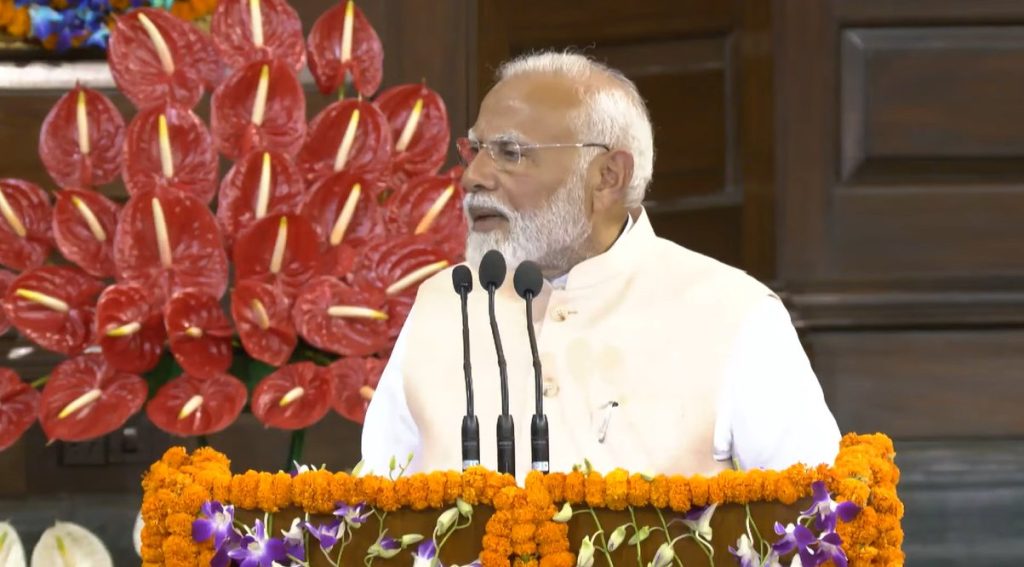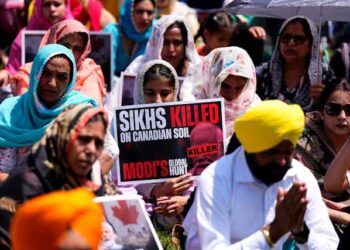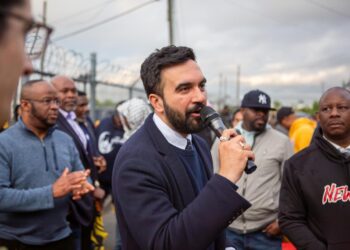Smytta Yadav, University of Sussex
Narendra Modi was sworn in as India’s prime minister on June 9 for a historic third term. But his power and mandate stand unexpectedly diminished. His Bharatiya Janata party (BJP) fell short of an absolute majority and has had to rely on coalition partners to form the government.
The losses were particularly humbling in the north Indian state of Uttar Pradesh, and especially in the holy city of Ayodhya. Uttar Pradesh is home to more than 257 million people and has the most parliamentary seats of any state in the country. In 2014, when Modi first came to power, people in this state formed the core of the BJP’s support.
A few months before the election, Modi inaugurated a controversial new Hindu temple in Ayodhya at the site of a mosque demolished more than 30 years ago. The political motives were clear. Modi turned the consecration of the temple into a massive national event, aiming to galvanise his conservative Hindu support base.
Ayodhya even underwent a US$3 billion (£2.3 billion) government-funded transformation to turn it into what some Hindu nationalist leaders have called a “Hindu Vatican”.
However, voters in Faizabad constituency, which includes Ayodhya, rejected the BJP – and resoundingly at that. The candidate for the opposition Samajwadi party, Awadhesh Prasad, defeated the BJP’s nominee, Lallu Singh, by a margin of almost 55,000 votes.
Throughout the election campaign, Modi spoke at length about the importance of the temple in Ayodhya. He hailed the opening of the temple as fulfilment of “the dream that many have cherished for years”.
But people wanted more than just words. The BJP’s defeat in Faizabad shows that a disregard for local issues and the use of astute, inclusive political tactics may result in changes to voter loyalty, even in areas of historical significance to India’s majority Hindu population.

How Indian politics is changing
Ayodhya is believed by many Hindus to be the birthplace of their god Lord Rama and holds immense religious and historical importance. It is also the site of a land dispute that stretches back more than a century.
In 1992, following a nationwide campaign to build a temple on the site of the Babri Masjid mosque, tens of thousands of Hindu protestors gathered in Ayodhya and tore the mosque down. Many Hindus believe that the mosque was built in place of an ancient Hindu temple – something modern archaeological excavations have not yet found evidence for.
The mosque’s demolition sparked riots across the country that killed nearly 2,000 people. And since then, Muslims and Hindus have gone to court many times over who should control the site.
In 2019, the Indian Supreme Court ruled that the disputed land should be given to Hindus for a temple, while Muslims would be allocated land at another location for the construction of a mosque. The court then ordered the federal government to set up a trust to manage and oversee the temple’s construction.
Unsurprisingly, the ruling has done little to ease tensions. The new temple was built partly on land that was already occupied by minority communities, whose houses have been demolished to make way for a 20-metre wide and 13-kilometre long path leading to the temple. Many of these displaced residents have not been properly compensated for the loss of their property.
Other residents of Ayodhya also lost their property as part of the government’s plan to modernise the city. Part of the land owned by the Ayodhya’s university, alongside a set of buildings that house staff, was allotted to the construction of a new airport.
Prasad capitalised on these problems, as well as others including simmering anger over unemployment, during his campaign. The unemployment rate in India rose to 8.1% in April from 7.4% in March, compared with around 6% before the pandemic. According to a survey of 20,000 voters by the CSDS-Lokniti polling agency, unemployment played a key role in determining the votes of 27% of people.
The opposition spun the BJP’s campaign slogan that it was seeking 400 seats in parliament against the governing party. With such a large mandate, they claimed, the BJP could take away the constitutional rights of historically marginalised communities such as Dalits, who sit at the bottom of India’s caste hierarchy.
In April, Lallu Singh had stoked fears among Dalits in Faizabad by purportedly saying the government would “make a new constitution” if it received an outright majority in parliament. Many Dalits feared that this would mean amending the quota for jobs allocated for minority groups that is enshrined in the constitution.
The opposition also deliberately formed coalitions with Muslims, Dalits and other “backward” classes (a collective term used by the Indian government to classify lower-caste categories) in many parts of the state. This improved their standing even more.
The BJP’s loss in Ayodhya demonstrates that cultural and religious symbolism is insufficient to win an election. It makes the case that political parties in India ought to balance symbolic actions with responsible leadership and an awareness of regional issues in a more nuanced manner.
In an interview with Indian Express following his election, Prasad said:
The BJP was spreading lies in the country, saying, “hum Ram ko laaye hain” (we brought back Ram). The reality is they cheated the country in the name of Ram, did business in the name of Ram, allowed inflation to rise in the name of Ram, created unemployment in the name of Ram, and uprooted the poor and farmers in the name of Ram. The BJP has worked to destroy the dignity of Ram. People have understood this”.
For India’s democracy and secularism to flourish, it is imperative that all groups believe their concerns are taken seriously in the political process.
Smytta Yadav, Research Fellow in Social Anthropology, University of Sussex
This article is republished from The Conversation under a Creative Commons license. Read the original article.











